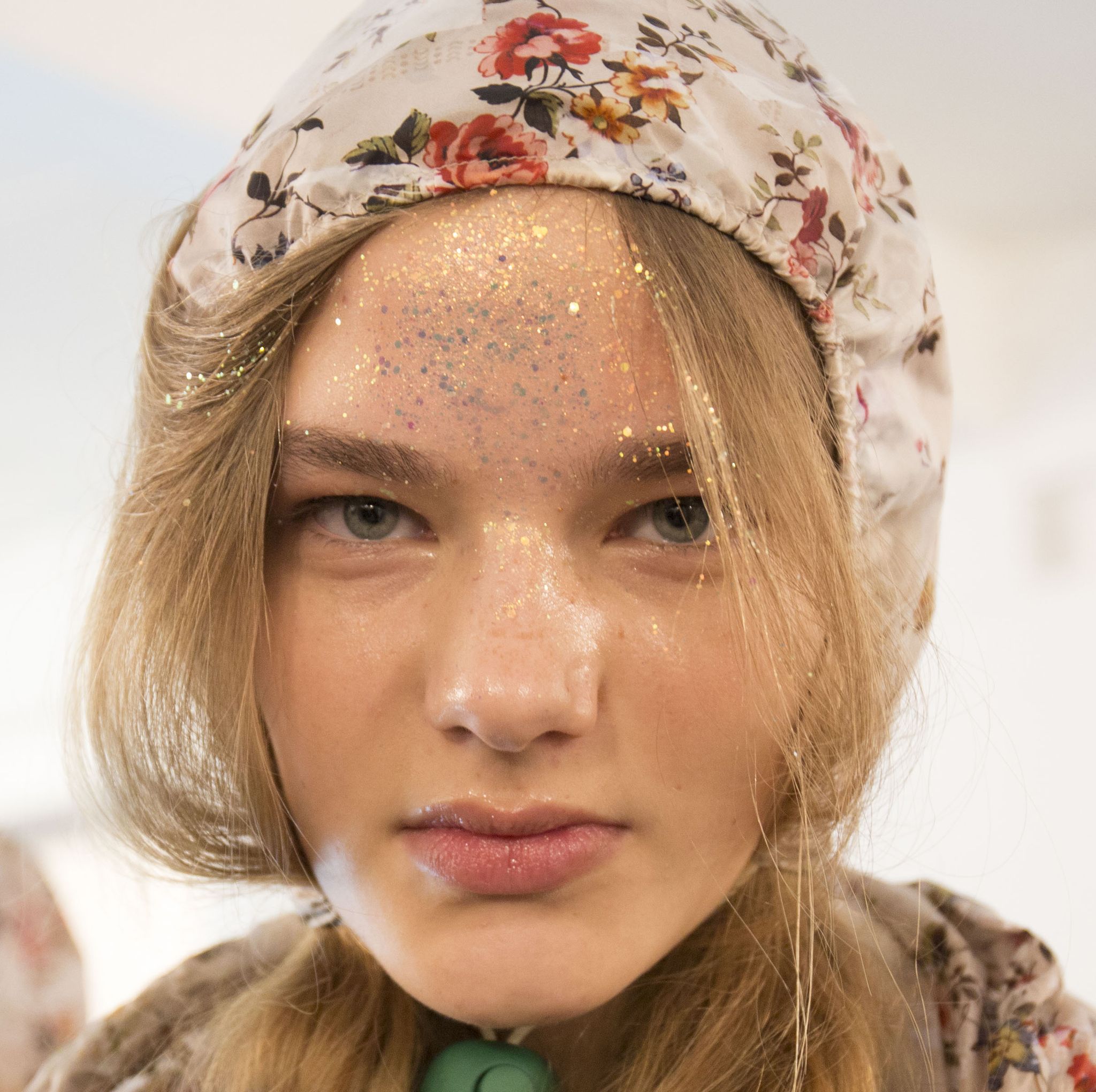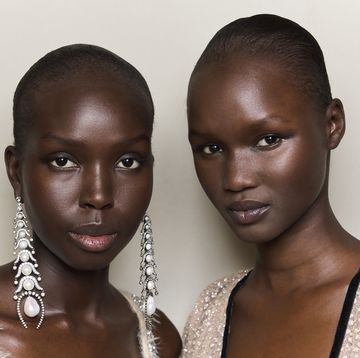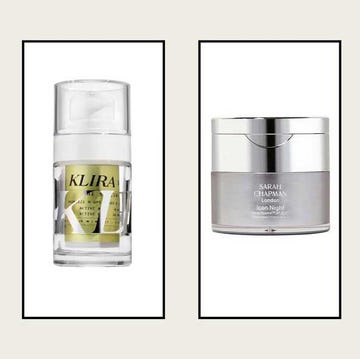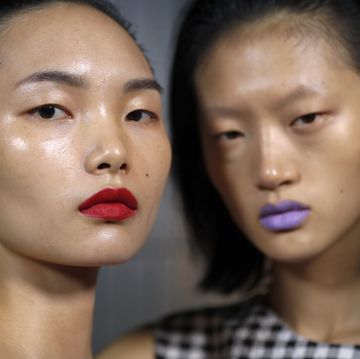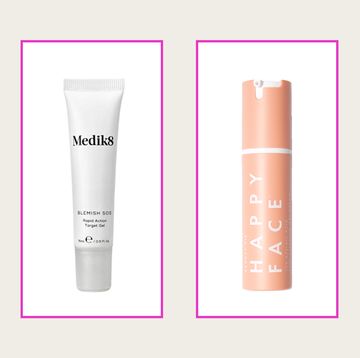More often than not, 'out-of-sight, out-of-mind' is the blasé approach to looking after our body's internal organs because, well, we crave visible results.
We're hard-wired to see the effects of our efforts on the surface, so with the Kombucha bubble not bursting anytime soon (that's fermented tea to you and me), it might just be the secret to getting your skin to glow by looking after your gut.
Yup, by jumping on the wellness train, you can actually drink your skin into a luminous state of dewy gorgeousness.
Before you add this ancient elixir to your morning skincare routine, here's everything you need to know about Kombucha.
What is Kombucha?
Kombucha may look similar to an ice tea but with an added fizz. It also has way more benefits than your average beverage.
'Kombucha is a fermented black or green tea drink. The tea is combined with a bacterial mother (called a scoby) and sugar and left to ferment for a period of time. During the fermentation process, gas is produced, making the drink “fizzy”. The flavour is usually tart and has very small traces of alcohol from the yeast fermentation', explains Registered nutritionist Clarissa Lenherr.
What the Scooby is a 'SCOBY'?
S-C-O-B-Y (symbiotic culture of bacteria and yeasts). Clearer now? Probably not. In a nutshell it houses the bacteria - a living organism, which is considered the starter culture of the Kombucha drink. The bacteria colony that forms this rubbery, squidgy flubber multiplies again and again over time, providing an eternal Kombucha tea supply for those who want to brew their own.
Healthy gut, healthy skin
Kombucha (kom-bu-cha) isn't exclusively found in the 'Kombucha Bar' at Coachella by any means. In fact, you can find it on many menus around the world, from India, to L.A., Japan - and now of course, in the hands of London's neo-hippies.
It's no secret that the gut-skin relationship exists. It's something that shouldn't be ignored as imbalances of good and bad bacteria on the inside, can affect how your skin looks on the outside. Skin conditions such as acne, rosacea, dermatitis, eczema have all been cited to have connections with digestive health.
Kombucha skincare benefits
As well as helping your skin build a better, healthier relationship with your gut, B-vitamins are also found in Kombucha. The likes of B2, B6, B12 are often found in skincare products, so with the beauty elixir that is Kombucha, you can encourage glowing skin from the inside-out as well.
'As kombucha is a source of live microbes, it is thought that these beneficial bacteria and yeasts might be able to support the bacterial balance residing in out gut. However, studies are limited on this topic, but the outlook is hopeful and anecdotally, many of my clients notice a change in their gut related concerns after frequent consumption of fermented foods', believes Lenherr.
Is Kombucha a natural probiotic?
Despite not being clinically proven, Kombucha has seen a lot of hype lately about its health benefits amongst millennials.
It is described as 'a naturally fermented beverage, containing living bacteria and yeast', which essentially makes it a probiotic drink. Probiotics types of bacteria that are considered to be 'helpful'. They are the 'good guy' bacteria, that come in many different strains from Lactobacillus Gasseri to Bifidobacterium Bifidum, all used to support different gut imbalances and some promote healthy skin specifically.
What's the best time of day to drink Kombucha?
Drinking Kombucha on a daily basis can help keep things balanced, particularly as we eat and drink throughout the day, opening ourselves up to toxins, chemical residues, artificial oestrogen hormones in the water, making it hard work on our liver and digestive system. This is particularly relevant whilst taking medication such as antibiotics, as the bacteria imbalances can cause breakouts and weaken the immune system all round. It's also a good idea to top-up your helpful bacteria before travelling, to try and reduce the chances of an upset stomach.
'If you are not a routine fizzy drink consumer, then you might find that a kombucha is a nice “end-of-the-day” beverage rather than an alcoholic alternative. Otherwise, at any point or time in the day (except late at night due to traces of caffeine) it is great to introduce. Try not to have it with anything hot as heat can denature or kill the beneficial microbes', advises Lenherr.
Served hot or cold?
Room temperature is the most beneficial way to drink Kombucha. If it's too cold - fridge temperature - then the bacteria can go to sleep, which won't give you much goodness. Likewise if it's too hot, it can affect the colony's living environment, so room temperature is best.
Is it always safe to drink?
There's nothing to suggest Kombucha is harmful, but like most alternative remedies, it is often advised to avoid whilst pregnant - or to consult the advice of a qualified nutritionist first.
'Kombucha can be consumed daily or every two/three days. I normally tell my clients to introduce it slowly and gradually increase their consumption, just in case it triggers any gastro upset. If you suffer with IBS, IBD, SIBO or any other significant digestive concern, then Kombucha may actually trigger symptoms, so it is best to work with a gut-health nutritionist or specialist when introducing fermented foods', says Lenherr.
Sold on this? *Adds to basket*
Like this article? Sign up to our newsletter to get more articles like this delivered straight to your inbox.
In need of more inspiration, thoughtful journalism and at-home beauty tips? Subscribe to ELLE's print magazine today! SUBSCRIBE HERE
